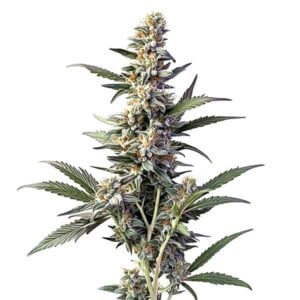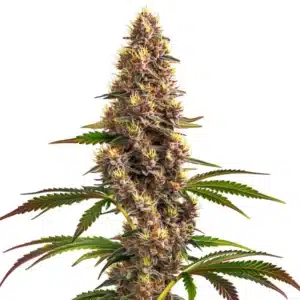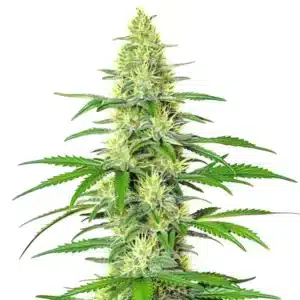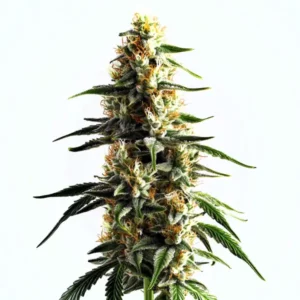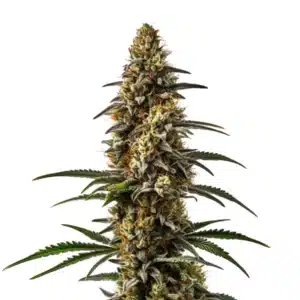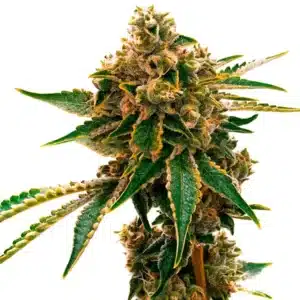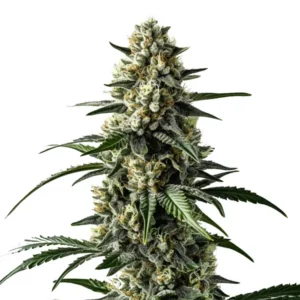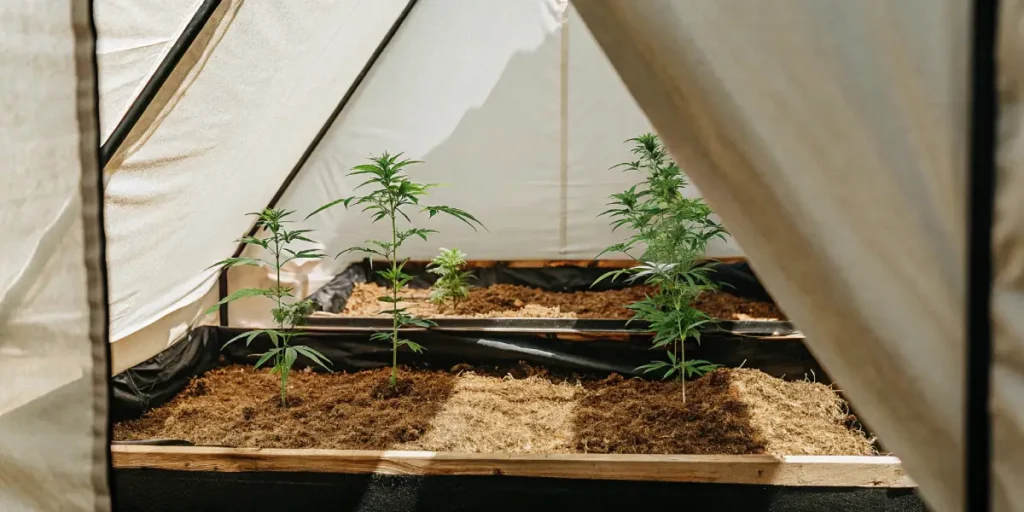
How Best Mulch for Cannabis Can Revolutionize Your Grow Setup
Mulch and Its Benefits for Cannabis
What Is Mulch and Why Does It Matter for Cannabis?
The best mulch for cannabis acts as a protective layer of material applied to the surface of the soil. It can be organic, like straw or wood chips, or inorganic, like plastic or gravel. Mulch is more than just a soil cover; it plays a vital role in maintaining soil health, conserving moisture, and regulating temperature. For cannabis plants, these benefits translate into healthier roots, better nutrient uptake, and improved overall growth.
In cannabis cultivation, mulch acts as a natural barrier, protecting the soil from harsh weather, preventing erosion, and suppressing weeds. By keeping the soil consistently moist and cool, mulch reduces the frequency of watering, making it a sustainable choice for growers. Whether you’re growing indoors or outdoors, using the best mulch for weed control not only helps manage unwanted plants but also ensures your cannabis thrives in a healthy, balanced environment.
Recommended Strains
Sweet Afghan Delicious Autoflower F1
|
|
THC | 18% - 22% (Medium) |
|
|
Type | Autoflowering F1 |
|
|
Yield | Medium |
|
|
Phenotype | 75% Indica / 25% Sativa |
Super Boof
|
|
THC | 25% - 28% (High) |
|
|
Type | Feminized |
|
|
Yield | Low |
|
|
Phenotype | 60% Indica / 40% Sativa |
Benefits of Using Mulch in Cannabis Cultivation
The benefits of mulch for cannabis cultivation are numerous. Firstly, it helps regulate soil temperature, keeping roots cool in the summer and warm in the winter. This stability is crucial for cannabis plants, which are sensitive to temperature fluctuations. Secondly, mulch retains moisture, reducing the need for frequent watering and preventing water stress. This is particularly beneficial for growers in arid climates.
Additionally, mulch suppresses weeds, which compete with cannabis plants for nutrients and water. By minimizing weed growth, mulch allows cannabis plants to access all available resources. Organic mulches, like compost or straw, also break down over time, enriching the soil with essential nutrients and boosting microbial activity.
How Mulch Improves Soil Health and Water Retention
Healthy soil is the foundation of successful cannabis cultivation, and mulch is an effective way to enhance soil health. Organic mulches decompose over time, adding valuable organic matter to the soil. This improves soil structure, increases its water-holding capacity, and promotes root growth. For cannabis plants, this means better access to nutrients and water.
Mulch also reduces evaporation, ensuring the soil stays moist for longer periods. This consistent moisture is essential for cannabis, which requires a stable water supply to develop robust roots and produce high-quality yields. By acting as a natural sponge, mulch helps conserve water and supports sustainable growing practices.
Promos & Deals
Types of Mulch Suitable for Cannabis
Organic Mulch Options for Cannabis Plants
Organic mulches are made from natural materials that break down over time, enriching the soil. Common options include straw, hay, wood chips, bark, and compost. Straw and hay are excellent choices for cannabis growers as they are lightweight, easy to spread, and provide effective weed suppression. Wood chips and bark, on the other hand, decompose slowly, offering long-term benefits.
Leaf litter and grass clippings are also popular organic mulches. They’re readily available, cost-effective, and rich in nutrients. These materials improve soil fertility as they break down, supporting healthy cannabis growth. Using organic mulch is particularly beneficial for growers who want to maintain a natural and eco-friendly cultivation process.
Inorganic Mulch Options for Cannabis Cultivation
Inorganic mulches, such as plastic sheeting, gravel, and reflective materials, are durable and low-maintenance. Plastic mulch is commonly used in commercial cannabis cultivation to control weeds and regulate soil temperature. Reflective mulches, such as silver or white plastic, can increase light exposure, boosting photosynthesis and plant growth.
Gravel and stones are another option, providing excellent weed control and preventing soil erosion. While inorganic mulches don’t add nutrients to the soil, they are long-lasting and ideal for growers looking for minimal maintenance. Choosing the best mulch for cannabis depends on your growing setup and specific needs.
Comparing Mulch Types: Pros and Cons
Organic mulches are biodegradable and enrich the soil, but they require regular replenishment as they decompose. They’re ideal for growers who prioritize soil health and sustainability. In contrast, inorganic mulches are durable and require little upkeep, but they don’t contribute to soil fertility. Both types have their advantages, and the best choice depends on your cultivation goals.
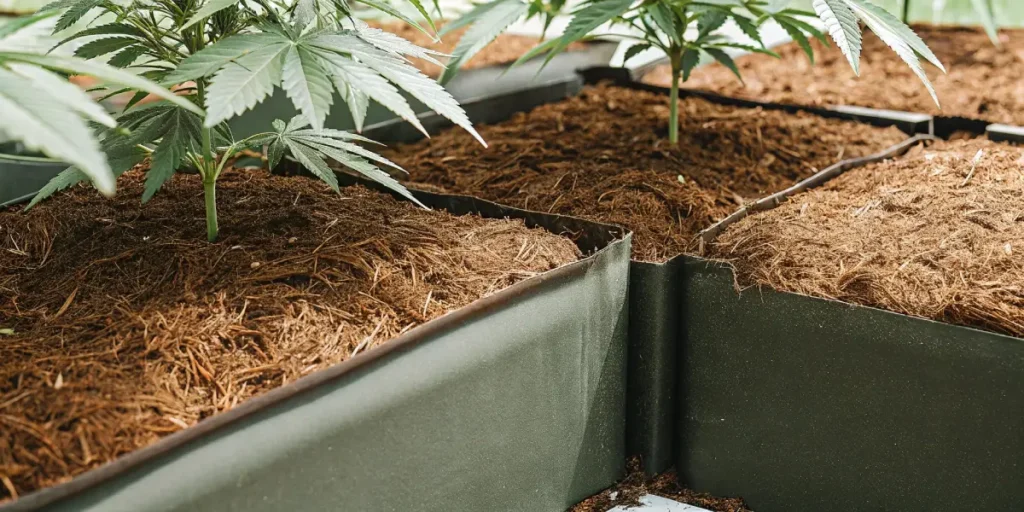
Selecting the Best Mulch for Cannabis Growth
Factors to Consider When Choosing Mulch
When selecting mulch for cannabis, consider factors like your growing environment, budget, and cultivation goals. For outdoor grows, organic mulches like straw or wood chips are excellent for suppressing weeds and improving soil health. For indoor setups, reflective mulches can optimize light use and enhance plant growth.
Climate also plays a role. In hot, dry regions, mulches that retain moisture, like compost or straw, are ideal. In cooler climates, materials like plastic sheeting can help maintain soil warmth. Understanding your specific growing conditions ensures you choose the best mulch for cannabis.
Matching Mulch Types to Indoor and Outdoor Cannabis
Indoor and outdoor cannabis cultivation requires different approaches to mulching. Indoor growers often use inorganic mulches like reflective plastic to maximize light efficiency and maintain consistent soil conditions. Outdoor growers, on the other hand, benefit from organic mulches that improve soil structure and provide natural weed control.
For outdoor cannabis, straw, hay, and wood chips are excellent choices. They’re biodegradable, environmentally friendly, and effective at regulating soil temperature. Indoor growers can experiment with materials like reflective mulch to boost light distribution and support healthy growth.
Best Mulch for Different Growth Stages
The best mulch for cannabis can vary depending on the plant’s growth stage. During the vegetative phase, materials that retain moisture and suppress weeds, like straw or compost, are ideal. These mulches support rapid root development and robust foliage growth. During flowering, reflective mulches can enhance light exposure, promoting larger and denser buds.
Tailoring your mulch choice to the plant’s growth stage ensures optimal results. Monitoring the plant’s needs and adjusting the mulch accordingly can significantly impact the quality and quantity of your harvest.
Application Techniques for Mulching Cannabis
How to Properly Apply Mulch in a Cannabis Garden
Applying mulch correctly is essential for its effectiveness. Start by clearing the soil surface of weeds and debris. Spread a 2-4 inch layer of mulch evenly around the base of the cannabis plant, leaving some space around the stem to prevent rot. This ensures the roots are protected while maintaining airflow.
For outdoor grows, replenish organic mulch as it decomposes to maintain its benefits. In indoor setups, keep an eye on moisture levels and adjust the mulch layer as needed. Proper application ensures the best mulch for cannabis delivers maximum results.
Common Mistakes to Avoid When Mulching
Avoid piling mulch too high around the base of the plant, as this can trap moisture and lead to root rot. Using materials that compact easily, like grass clippings, without proper aeration can also cause issues. Regularly check the mulch layer to ensure it’s not harboring pests or diseases.
Another common mistake is neglecting to replenish organic mulches as they break down. This reduces their effectiveness over time. By avoiding these pitfalls, you can ensure the mulch remains a valuable asset in your cannabis cultivation.
Maintaining Mulch for Long-Term Benefits
To maintain the benefits of mulch, inspect it regularly for signs of decomposition or compaction. Add fresh mulch as needed to ensure consistent soil coverage and protection. Organic mulches may need replenishing every few months, while inorganic options require less frequent maintenance.
For outdoor grows, consider seasonal adjustments to the mulch layer. Adding extra mulch before winter can help insulate the soil, while reducing the layer in spring prevents overheating. Maintaining the best mulch for cannabis ensures your plants receive continuous support.
Enhancing Cannabis Growth with Mulch
How Mulch Prevents Weeds and Pests
One of the primary benefits of mulch is its ability to suppress weeds. By blocking sunlight, mulch prevents weed seeds from germinating, reducing competition for nutrients and water. Organic mulches can also deter pests by creating an unfavorable environment for them.
Mulch acts as a physical barrier, protecting the soil from pests like fungus gnats. Certain organic mulches, like cedar chips, even have natural pest-repelling properties. Using the best mulch for cannabis helps maintain a clean and pest-free growing environment.
Mulch for Water Conservation in Cannabis Cultivation
Mulch significantly reduces water evaporation, ensuring the soil stays moist for longer. This is particularly beneficial for growers in arid regions or those looking to conserve water. By maintaining consistent moisture levels, mulch supports healthy root development and reduces the risk of water stress.
Using mulch as part of your water conservation strategy can also lower irrigation costs and minimize environmental impact. For cannabis plants, this translates into more efficient nutrient uptake and improved overall health.
Boosting Microbial Activity with Organic Mulch
Organic mulches promote microbial activity in the soil, which is essential for nutrient cycling and plant health. As the mulch decomposes, it provides a steady supply of organic matter, feeding beneficial microbes. These microbes break down nutrients into forms that cannabis plants can easily absorb.
By enhancing soil biology, organic mulch supports stronger roots, healthier plants, and higher-quality yields. Choosing the best mulch for cannabis ensures your soil remains vibrant and productive throughout the growing season.
Strains That Thrive with Mulch
Crystal Candy Auto
Crystal Candy Auto is a resin-rich autoflowering strain with a unique sweet and fruity aroma. Its compact structure and robust root system make it an excellent candidate for mulching. Organic mulches like straw or compost enhance the soil’s nutrient content, supporting Crystal Candy Auto’s vigorous growth. With mulch conserving moisture and improving soil health, this strain produces dense, aromatic buds in record time.
Super Boof
Super Boof is a high-yielding hybrid strain prized for its balanced effects and resilience. Mulching with wood chips or bark helps regulate soil temperature and suppress weeds, providing Super Boof with the ideal conditions to flourish. The strain’s robust nature pairs well with organic mulch, ensuring a clean and nutrient-rich environment for optimal growth and resin production.
Sweet Island Skunk Fast Version
Sweet Island Skunk Fast Version is a fast-flowering Sativa-dominant strain known for its tropical flavor and uplifting effects. This strain thrives with the addition of reflective mulch, which boosts light exposure in outdoor and greenhouse setups. Organic mulches, such as hay or compost, also work wonders by promoting healthy roots and preventing water stress, ensuring Sweet Island Skunk delivers exceptional yields with vibrant terpene profiles.
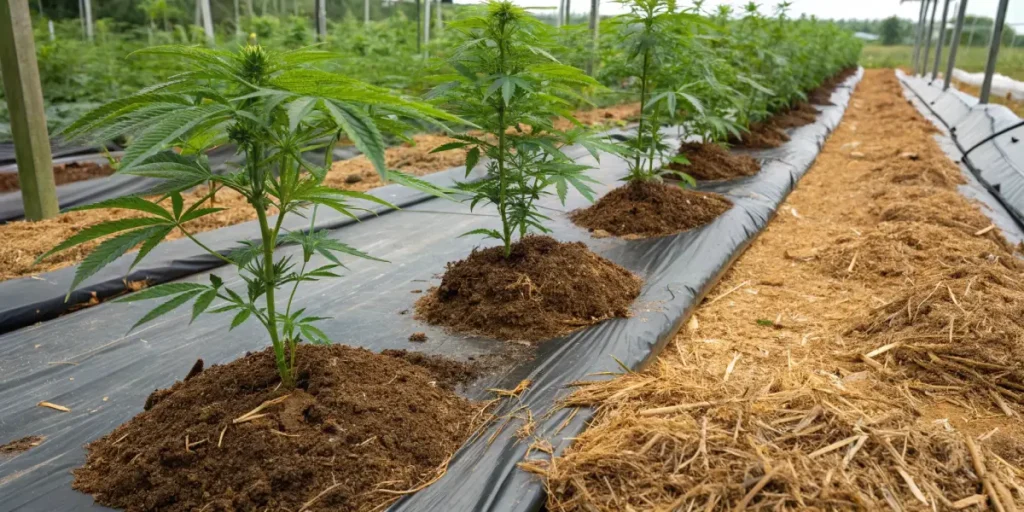
FAQs About Mulch for Cannabis
What is the best mulch for outdoor cannabis plants?
Straw, wood chips, and hay are excellent choices for outdoor cannabis. They suppress weeds, retain moisture, and improve soil health. Choose materials that suit your climate and growing conditions for the best results.
Can I use any type of mulch for cannabis?
Not all mulches are suitable for cannabis. Avoid materials treated with chemicals or those that compact easily, like fresh grass clippings. Organic options like compost or straw are generally safe and effective for most setups.
How often should I replace mulch in my cannabis garden?
Organic mulches should be replenished every few months as they decompose. Inorganic mulches, like plastic or gravel, require less frequent replacement but should be inspected regularly to ensure they’re functioning properly.


